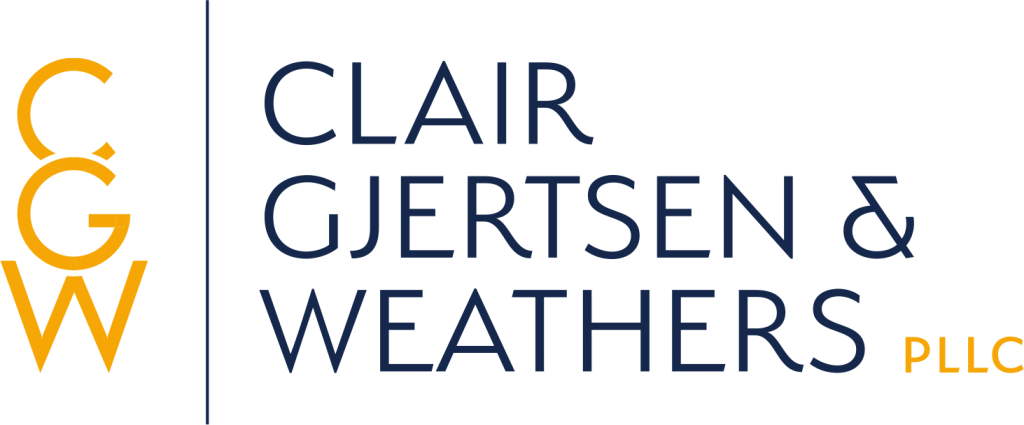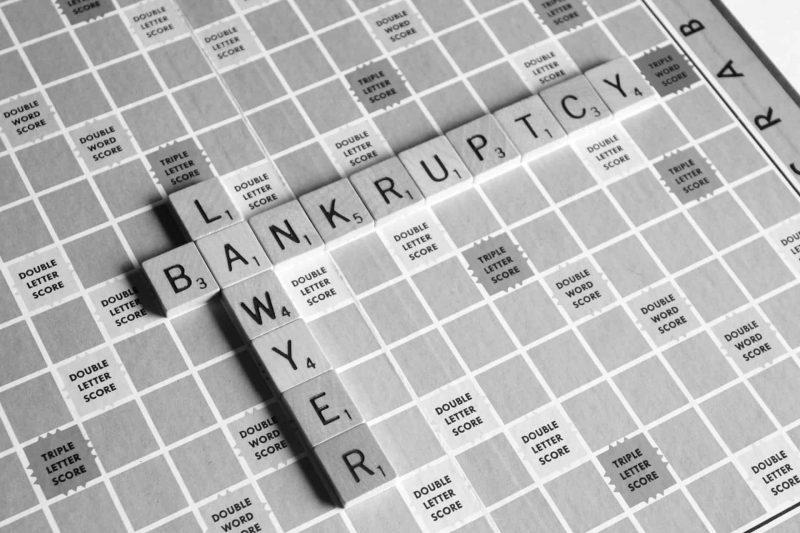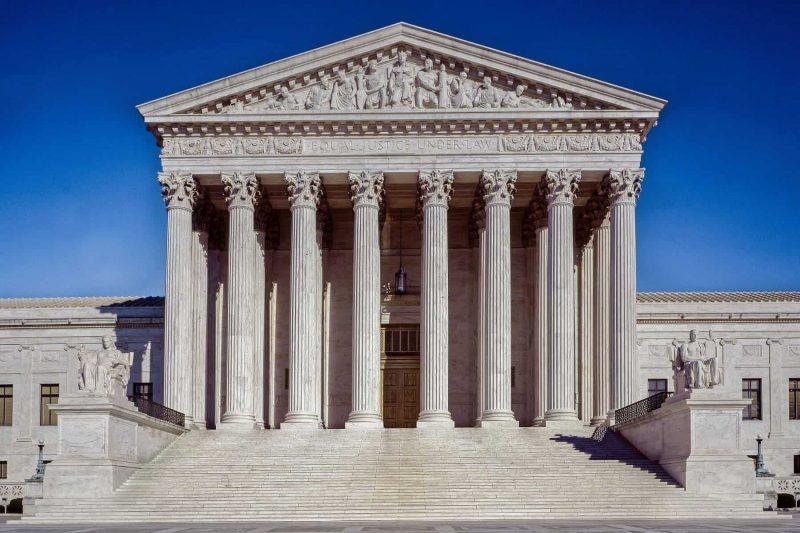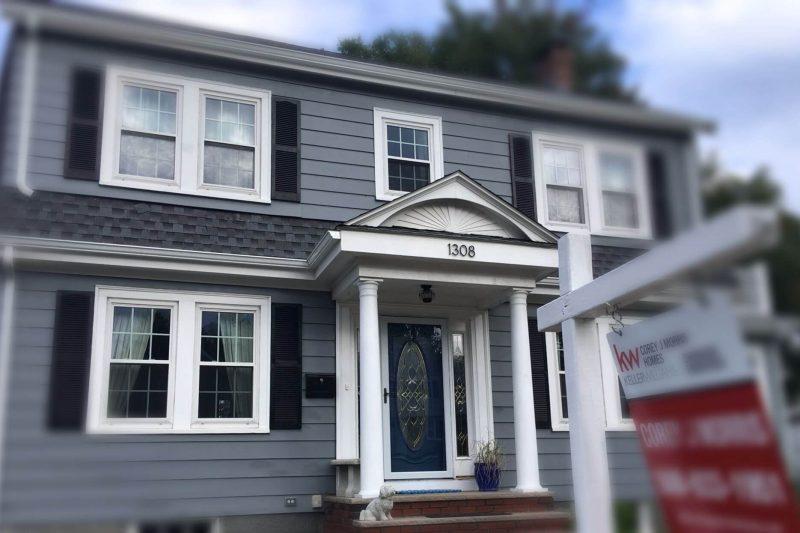NY & CT Foreclosure & Bankruptcy Attorneys
Schedule A Free Consultation 914.472.6202
You will be Assigned a Bankruptcy Trustee.
This trustee will be assigned to oversee your filing. The bankruptcy trustee administers your estate, will examine your paperwork, financials, and petition, and will preside at the meeting of your creditors.
Personal documents and Financials will need to be sent to your Assigned Bankruptcy Trustee.
Full disclosure is necessary when filing a bankruptcy. The trustee will require copies of all your bank statements, paystubs, profit and loss statements, tax returns, loan statements, and title and deed documentation. These documents will need to be provided to your trustee at least three weeks prior to your 341 Meeting. If you are worried about the potential of losing an asset, it is imperative that you speak with an attorney before filing a Chapter 7 Bankruptcy.
An Automatic Stay goes into effect.
This stay halts creditors from taking further action to collect against you, including but not limited to:
- Beginning or continuing legal proceedings against you
- Creating, perfecting or enforcing a lien against your property
- Contacting you by phone, mail or email
- Foreclosing on your home
- Repossessing or evicting you from your property
- Garnishing your wages
- Levying your bank accounts
The 341 Meeting is scheduled.
The 341 Meeting is also known as the meeting of your creditors. This trustee will get to ask you questions about your property, financial circumstances, and bankruptcy paperwork. It is generally the only time you have a meeting and your attorney will be present with you. Creditors have a right to attend the meeting but generally do not. The trustee is not a judge and generally, the meeting will take place in a general room and not a courtroom.
You might Receive Reaffirmation Agreements.
It is possible if you own a home, car or boat that those creditors will reach out to you asking you to reaffirm the debt, so that it will not be discharged during the bankruptcy process. A creditor cannot compel you to enter into a reaffirmation agreement, but depending upon the creditor, it could be a requirement of keeping your car. It’s always important to speak to an experienced professional when it comes to reaffirmation agreements, as just because a creditor sends you one, doesn’t mean you should execute it.
You Take a Personal Financial Management Course.
You will be required to complete a personal financial management course before you receive your discharge. This course can be taken online or via telephone. This course is in addition to a credit counseling course you took before filing your petition.
You Receive your Discharge.
Finally, you will receive your discharge. Your discharge gives you a fresh start and removes the legal obligation for you to repay any of your discharged debt.
Contact an Experienced Bankruptcy Attorney:
If you are considering a bankruptcy filing, it’s important that you speak with someone who has knowledge about the field. Bankruptcy is incredibly procedural, and you do not want your filing dismissed or worse, loss of an important asset for a technicality. Clair Gjertsen & Weathers PLLC have been practicing in this field for decades. Please give us a call to schedule a free consultation, 914.472.6202.
Supreme Court upholds CDC Eviction Moratorium, but the end is in sight.
In response to the COVID-19 Pandemic, the Center for Disease Control (“CDC”) ordered a nationwide moratorium on residential evictions with the latest extension through July 31, 2021. The CDC has also announced that this will be the final extension of the moratorium. Since its inception, however, the moratorium has been the subject of numerous lawsuits with courts from across the country ruling on its constitutionality. Now, after much discussion, the Supreme Court has weighed in on the matter.
Eviction Moratorium Lawsuit
In the District of Columbia, an assortment of property owners and realtor trade associations filed suit against the CDC challenging the moratorium. In Alabama Assn. of Realtors v United States Dept of Health and Human Services, No. 1:20-cv-003377 (D.D.C. May 5, 2021), the District Court ruled that while CDC has comprehensive rulemaking powers, the moratorium on residential evictions surpassed its authority. In response, the CDC requested that the decision be stayed to allow time for them to appeal, which was granted by the District Court. This ruling was appealed by the Alabama Association of Realtors and eventually made its way to the United States Supreme Court.
U.S. Supreme Court Upholds CDC Eviction Moratorium, but the End is in Sight
In a narrow 5-4 decision, the U.S. Supreme Court left the eviction moratorium in place. Chief Justice Roberts along with Justices Breyer, Kagan, Sotomayor, and Kavanaugh voted to deny lifting the moratorium. In a separate concurrence, Justice Kavanaugh wrote that while the District Court was correct that the CDC had exceeded its existing statutory authority, the Court should not lift the eviction moratorium given the pending expiration of the moratorium on July 31, 2021. By allowing the moratorium to remain in place until then, “those few weeks will allow for additional and more orderly distribution of the congressionally appropriated rental assistance funds.” He went on to write that any further extension of the eviction moratorium would require, “clear and specific congressional authorization.” Justices Thomas, Alito, Gorsuch, and Barrett would have granted the application to vacate the stay and have the order invalidated nationwide immediately.
Justice Kavanaugh in his concurrence was influenced by the CDC announcing that the moratorium will not be extended further. With the CDC not inclined to impose any further extensions, July 31, 2021, marks the end of the much-litigated nationwide eviction moratorium. As such, Landlords will be allowed to proceed with their evictions nationwide unless further prohibited by state restrictions.
Current State of Evictions in New York
While the CDC nationwide moratorium is ending soon, the state legislature in New York has added additional roadblocks for landlords. On May 4, 2021, Governor Cuomo extended the COVID-19 Emergency Eviction and Foreclosure Prevention Act of 2020. This extension acts to prolong the moratorium on residential and commercial evictions until August 31, 2021 for tenants who have suffered a COVID-related hardship. It is unknown at this time if a further extension will be passed by the State.
Have Questions About the Eviction Moratorium in New York?
Clair Gjertsen & Weathers PLLC continues to monitor this ever-changing landscape. For additional questions regarding the implications of these decisions and related landlord/tenant issues, we invite you to contact Clair Gjertsen & Weathers PLLC by calling 914-472-6202. We look forward to hearing from you.
The Consumer Financial Protection Bureau has finalized new mortgage servicing guidelines. These new guidelines, known as the 2021 Mortgage Servicing COVID-19 Rule, are designed to give homeowners who suffered hardship due to the pandemic a path to get back on track with their mortgage while also encouraging loan servicers to evaluate borrowers for loan modification instead of commencing a foreclosure action in 2021. This Rule is effective August 31, 2021, the day after New York’s foreclosure moratorium is scheduled to end.
Streamline Mortgage Loan Modifications
The 2021 Mortgage Servicing COVID-19 Rule encourages servicers to offer streamlined loan modifications, which are loan modifications offers made without a complete evaluation of the borrower’s financial situation. The Rule also prohibits interest accrual on any delayed portion of the loan, which is due at maturity, this is commonly known as a balloon payment.
New Mortgage Loan Procedural Safeguards
The 2021 Mortgage Servicing COVID-19 Rule includes additional procedural safeguards for the period of August 31, 2021 through December 31, 2021. During this period, a loan can only be referred for foreclosure if
- the property is abandoned,
- the borrower is unresponsive to servicer outreach, or
- the borrower has been evaluated based on a complete loss mitigation application.
Principal Residence Mortgages Only
The Rule applies only to the borrower’s principal residence and not to investment properties, second homes, or reverse mortgages. The Rule also does not apply if the loan was more than 120 days delinquent before March 1, 2020 or if the statute of limitations will expire before January 1, 2022.
Have questions about the new mortgage servicing guidelines from the CFPB?
We are an experienced real estate and loan modification law firm that has helped thousands of clients with real estate transactions and mortgage loans. We understand that the mortgage loan servicing guidelines can be a bit overwhelming, and that is why we’re here to help you. Please give us a call to schedule a free consultation at 914.472.6202.
President’s Biden’s American Rescue Plan Act of 2021, put the repayment of federal student loans on pause, interest-free through the end of September for a total of 18 months. Over 44 million Americans have unpaid student loan debt totaling more than 1.6 trillion dollars, and as September is only a few months away, you may be wondering, if there is any way to eliminate that debt?
Can student loan debt be discharged in bankruptcy?
For a long time, if you had considered a bankruptcy filing to relieve your student loan debt, an attorney might have told you that your student loans cannot be discharged in bankruptcy. While this statement is not accurate, the bar is high and the process is more burdensome than it is for other types of debt. In order to qualify for a discharge of this type of debt, the filer (aka “Debtor”) would have to bring a lawsuit (“Adversary Proceeding”) within the bankruptcy and have to prove an undue hardship as outlined in section 523(a)(8) of the Bankruptcy Code.
What is an Adversary Proceeding?
Under the U.S. Bankruptcy Code, an adversary proceeding is “a proceeding to determine the dischargeability of a debt.” Effectively, it is a lawsuit within your bankruptcy, whereby you are suing the holder of your student loans for a discharge of your student loan debt.
What does the Bankruptcy Court Consider when reviewing your Student Loans?
In order to have the Court agree to discharge your student loans, you have to prove that repaying them would cause you an “undue hardship”. The Court will also consider if you’re seeking a discharge of your student loans in good faith. This means the Court will look at your history of payments to see if you tried to repay your loans, how many payments you made, etc…
Undue Hardship Standard:
In determining what constitutes an undue hardship, most Courts adhere to a three-part test created by the Second Circuit in Brunner v N.Y. State Higher Educ. Servs. Corp., 831 F.2d 395 (2d Cir. 1987). The “Brunner Test” provides that student loan debt can be discharged if the debtor establishes by a preponderance of the evidence that:
- He/She cannot maintain, based on current income and expenses, a minimal standard of living for himself/herself and his/her dependents if forced to repay the loans;
- Additional circumstances exist indicating that this state of affairs is likely to persist for a significant portion of the repayment period; and
- He/She has made good faith efforts to repay the loans.
Courts have generally only granted a discharge of student loan debt through the Brunner Test based on dire circumstances. For example, a court may consider a minimal standard of living if:
- Your income has been below the federal poverty level for several years and does not show signs of improving
- You are on public assistance or dependent on a family member
- You have a debilitating mental or physical illness or permanent injury
- You have a child with a serious illness who requires round-the-clock care
- Divorce reduced your family income with no hope of it returning to its previous level
- Disability checks are your only source of income
- You depend on public assistance to support your children
- You support a spouse who was seriously and permanently injured in a car accident or who has developed a total disability
The bottom line depends on your situation, as well as whether the student loan creditors are willing to work with you and acknowledge your undue hardship. These creditors are big companies with attorneys representing them, which is a good reason why you would want an experienced attorney representing you through this process.
Student Loan Mediation Before Litigation Program (SLM Program)
If you are not sure if you qualify for a discharge under the “Undue Hardship Standard”, but are having difficulty paying your student loans, the United States District Bankruptcy Court for the Southern District recently created a program, as of January 27, 2020, to help resolve student loan disputes through a court-supervised mediation process. This new program has created a forum for debtors and creditors to discuss consensual repayment options for government student loans and possible workouts for private student loans.
The SLM Program facilitates two different types of Student Loan negotiations:
- Requests for Student Loan Repayment Option Relief, such as a loan modification and
- Requests for resolution over disputes over the dischargeability of a Student loan debt.
What are examples of Student Loan Repayment Option Relief?
- Deferment
- Forbearance
- Rehabilitation
- Consolidation
- Income-Based Repayments
What counties are included within the Southern District of New York?
- Westchester
- Rockland
- Putnam
- Orange
- Dutchess
- Sullivan
- New York
- Bronx
We Can Help You File Bankruptcy With Student Loan Debt
While you do not technically have to go through an attorney when filing bankruptcy on student loans, bankruptcy and the student loan process can be an incredibly complex process. It requires determining which type of bankruptcy you’ll file and bringing an adversary proceeding, or filing for the SLM Program. Going through it alone could mean extra time, incorrect filings and, possibly a lost case. We are an experienced student loan bankruptcy law firm who has helped thousands of people in financial distress. We understand that student loans can be overwhelming and daunting and are here to help you through the process. Please give us a call to schedule a free consultation at 914.472.6202.
Clair Gjertsen & Weathers PLLC is proud to announce that Wendy Marie Weathers has once again been
recognized for her experience in the field and has been invited to lecture on bankruptcy before fellow
attorneys. Wendy will be presenting “The Means Test in Consumer Bankruptcy Cases” as a Live Webinar
on June 30, 2021.
More information on the program can be found here: https://www.lorman.com/training/banking/the-
means-test-in-consumer-bankruptcy-cases?discount_code=O7070983&p=15999&s=direct#faculty
With the foreclosure moratorium created by the COVID-19 Emergency Eviction and Foreclosure Prevention Act of 2020 expiring on August 31, 2021, a surge of Foreclosure Auction Sales will be coming. If you are at risk of losing your home, this article explains how a Foreclosure Auction Sale works and how to stop it.
How does a Foreclosure Auction Sale Work?
Foreclosure Auction Sales most often occur when a party is unable to pay a mortgage. If the lender can show that they followed the laws and procedures as mandated by the State, then a judgment will be granted, and the Court will order that a Foreclosure Auction Sale take place.
Generally, for the lender to proceed to a Foreclosure Auction Sale, its attorneys must first serve you with the Notice of Sale, as well as publishing the Notice of Sale in a general circulation publication, which the Court will order, such as the Journal News in Westchester. Once all notices have been given, the Foreclosure Auction Sale is usually held in the Courthouse of the Supreme Court of the County in which the foreclosed property is located. While Foreclosure Auction Sales are open to the public, state law prevents you from bidding on your own home.
The Foreclosure Auction Sale is then conducted by a Referee, with the highest bidder being deemed the winner. The Referee is an attorney, who has been appointed by the Court to conduct the auction. The Referee’s role is to prepare all documents, conduct the auction sale, and then prepare the property transfer documents and convey all funds to the lender after the auction.
Can a Foreclosure Auction Sale be stopped?
Under New York State law, you can stop a Foreclosure Auction Sale using many methods. Because state law requires an extensive pre-foreclosure process and an equally burdensome foreclosure process, you can delay or even stop the Foreclosure Auction Sale from occurring.
If you are wondering how to stop a Foreclosure Auction Sale, you should heavily consider speaking with an experienced foreclosure defense attorney. The foreclosure process is a complicated maze, requiring persistence and patience. An experienced foreclosure attorney can help you maneuver through this process and give you the best chance to keep your home.
How can you save your Home from a Foreclosure Auction Sale?
There are several ways to save your home from foreclosure. Below are five ways that can help you stop a Foreclosure Auction Sale from taking place to keep your home. Please read through these options carefully.
1. Filing for bankruptcy
Though filing for bankruptcy will momentarily help you stop a foreclosure auction of your home and potentially give you the ability to stay in your home long term through a court-supervised loan modification review, it may not always be the best choice, if you have assets. If you are contemplating filing for bankruptcy, you should learn everything you can about the bankruptcy process before filing and speak to experienced bankruptcy attorneys who can help guide you through the decision. Clair Gjertsen & Weathers PLLC can evaluate your case and determine if filing bankruptcy is the best option to stop the Foreclosure Auction Sale.
2. Applying for a loan modification
After submission and approval of an application, the lender can agree to several loan modifications to make your mortgage payments easier. Examples of loan modifications include:
- Lowering monthly payments and increasing the years on your term;
- Lowering interest rates;
- Restructuring your mortgage to include the delinquent amount as a balloon payment; and
- Forgiving a portion of the delinquent conditionally or even unconditionally.
Each lender has different restrictions on what they can offer you for a modification. You must reach out to your lender as soon as possible to explore these options.
3. Reinstating the terms of your loan
Reinstatement occurs when you bring the delinquent loan current in one lump sum payment. Reinstating a loan stops a foreclosure because you catch up on the defaulted payments. You would also have to pay any overdue fees and expenses incurred because of the default. Once the loan is reinstated, you resume making regular payments on the debt.
4. Paying off the loan in its entirety
A payoff occurs when you pay the total amount required to satisfy the loan balance completely. Paying off the loan stops a foreclosure as the loan would be deemed satisfied. Paying off the loan also removes the mortgage as a lien against your home.
5. Challenge the Foreclosure Action
Foreclosure actions are very procedural in nature and the bank’s burden extends to more then simply showing that there was a default in the mortgage payment. It is the bank’s burden to prove through the foreclosure process that they have complied with all procedures and pre-foreclosure notices. Oftentimes, especially when foreclosure actions are unopposed, a bank’s motion will be granted, despite insufficient proof of compliance with many of these procedures.
Throughout the process, you can fight and expose these mistakes to the Court, which could result in a delay of the Foreclosure Auction Sale or could prevent one from ever taking place. Even if you have failed to appear before the Court, you may still have the right to bring these mistakes to the Court’s attention. Clair Gjertsen & Weathers PLLC can evaluate your case and determine what mistakes were made by the lender to give you the best chance at stopping the Foreclosure Auction Sale.
Having questions about an upcoming Foreclosure Auction Sale on your Home?
If you are trying to stop a foreclosure auction of your home, time is of the essence, and the matter of utmost importance is returning your home into your possession. Clair Gjertsen & Weathers PLLC has been helping people through this complex process for the last 40-years. We offer free initial consultations to see which option is the best fit for you to stop a foreclosure auction sale to keep your home. Please give us a call at 914.472.6202.






